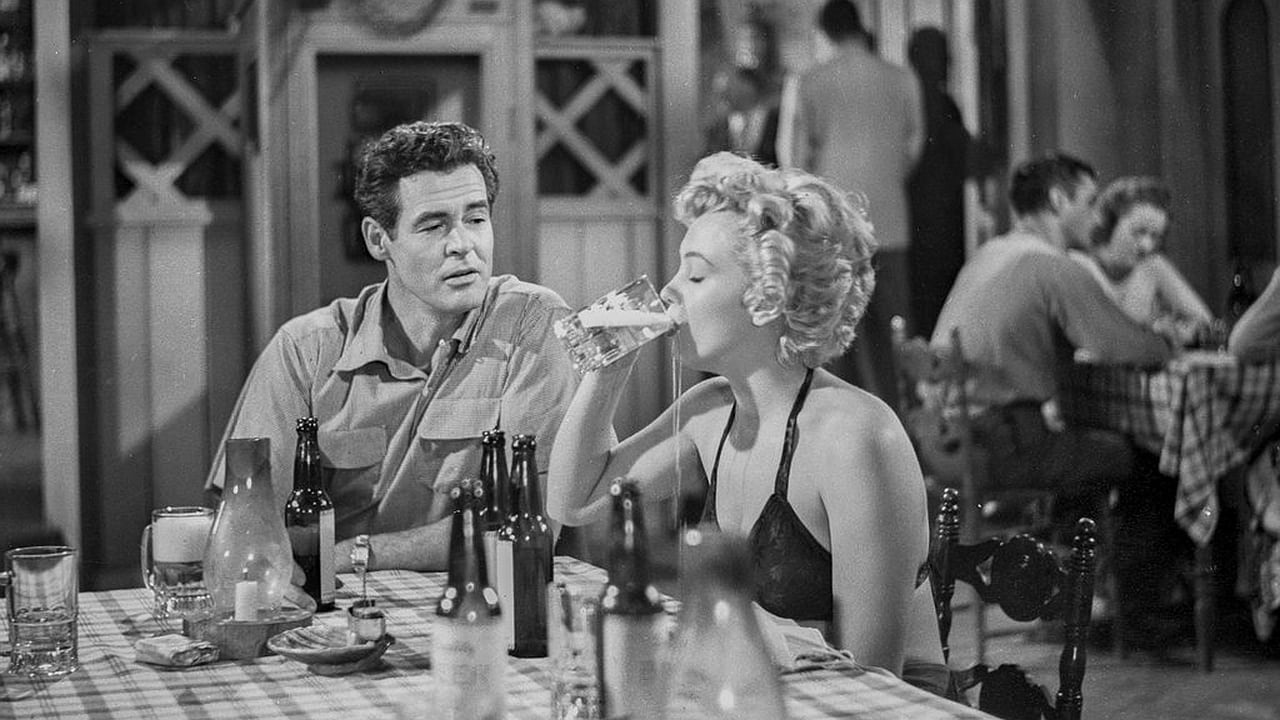Ah, Clash by Night, a gritty drama whipped up by none other than director Fritz Lang, who has a knack for infusing films with just the right amount of shadowy intrigue. Released in 1952, this gem firmly plants its roots in the worlds of Film-Noir and Romance. This movie review will dive headfirst into the stormy waters of its plot, themes, and unmatched performances.
In a nutshell, Clash by Night deposits us into Mae Doyle's tumultuous return to her hometown—a move which stirs the pot both in her family and love life. Picture this: Mae, portrayed by the electrifying Barbara Stanwyck, is like a rolling stone gathering all sorts of moss, cynicism style. It's not long before her restless spirit gets tangled in a love triangle with her well-meaning hubby Jerry, played by Paul Douglas, and Jerry’s friend Earl, a hard-edged character brought to life by Robert Ryan. If that sounds like a train wreck waiting to happen—which it is—you’re in for some juicy drama seasoned with themes of dissatisfaction and vulnerability. Let’s not forget Mae's brother Joe, who fears a repeat performance of disillusionment for his own love, Peggy, played by the enchanting Marilyn Monroe. Yes, that Marilyn! Talk about pressure.
What’s a movie critique without a dive into the nitty-gritty of its execution? Stanwyck is the beating heart of this melodrama—not shy to show her character’s raw, flawed humanity. Her performance is a textbook in weaving together strength and vulnerability, making Mae someone you can't quite figure out but can't stop pondering. Paul Douglas gives Jerry a layer of warmth and cluelessness that's endearing yet tragic, while Robert Ryan brings that classic noir edge to Earl. And oh, did I mention this film officially gives Marilyn Monroe her wings? Watching her play Peggy—vivaciously yet vulnerably—is like witnessing a star being born, just before she shot into the stratosphere. Cinematography wise, Lang captures the gray, salt-smudged air of a fishing town with perfection, amplifying the emotional bleakness of the tale. And the screenplay by Alfred Hayes and Clifford Odets? Sharp as a tack with dialogues you might want to scribble down in a notebook.
Fans of Film-Noir might get a deja vu sense when this movie cinematic masterpiece rolls out. If you've danced with the likes of 'Double Indemnity' or 'The Postman Always Rings Twice', you'd get the suave dance of danger and desire here. Yet, Lang's direction adds a unique dimension—straddling as it does, the delicate line between being a domestic melodrama and a classic noir thriller.
So, here's the takeaway: If you're a sucker for stories swimming in grit, love tangles, and shadowy motives, this is one of the must-watch films in your repertoire. Guttural and unapologetically honest, Clash by Night remains an cinematic jewel in the landscape of classic cinema. Go ahead and batter your heart against this film—it might bruise, but it’ll be worth the ride! And don’t forget to leave your thoughts below. Let’s keep the conversation alive, because if one thing’s for certain, this film deserves its place amongst the best Film-Noir movies—a veritable heaven for our introspective souls!

